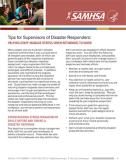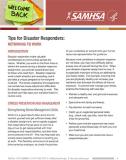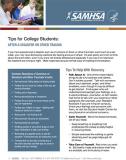
This brochure features the national Disaster Distress Helpline, which supports people who are coping with the after effects of a disaster. Learn about a disasters’ potential to cause psychological stress, warning signs of distress, and tips for coping.
Units per Product
Download
Disaster Distress Helpline Brochure
File Type: PDF
File Size: 2.86 MB







